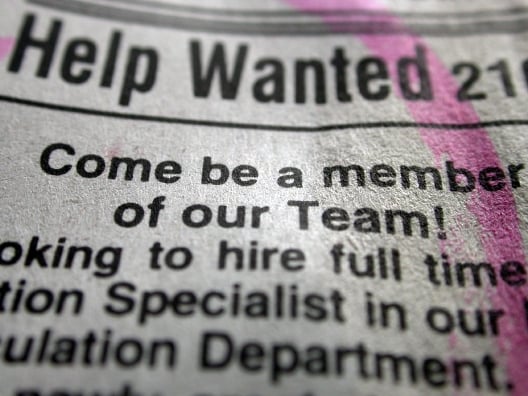Companies are still hesitating to ramp up hiring, even as more evidence emerges that the economy is slowly improving.
Companies are still hesitating to ramp up hiring, even as more evidence emerges that the economy is slowly improving.
Employers posted fewer job vacancies in September than the previous month, the second month of declines, according to a report Tuesday from the Labor Department. And a survey of small business owners showed they are more optimistic, but still reluctant to add many new workers.
Meanwhile, the Commerce Department reported Tuesday that wholesale inventories rose for the ninth straight month in September. Wholesalers and distributors are likely to build their stockpiles if they anticipate higher future sales.
Inventory restocking has been a crucial source of economic growth since the recession ended in June 2009. Increased orders to fill empty store and warehouse shelves has meant higher production at the nation's factories.
The National Federation of Independent Business, a leading small business group, said Tuesday that its optimism index rose to 91.7, the highest level in five months and second-highest in two years.
More small businesses plan to add workers than cut them in the next three months, the group said. And the average employment change per firm is zero, the group said. That figure has been in negative territory in every quarter but two since April of 2007, the NFIB said.
The reading "raises the odds that Main Street may contribute to ... job growth for the first time in over a year," the group said.
Economists welcomed the report, which has consistently shown the small business sector struggling as large companies recover at a healthier pace.
"Perhaps, at last, the small business sector has a pulse — albeit a faint one," said John Ryding, an economist at RDQ Economics. "This ... is another indicator that suggests that the pace of (economic) growth is picking up."
Still, overall job openings declined in September, a sign that hiring is likely to remain weak over the next several months.
The Labor Department said Tuesday that employers advertised 2.9 million jobs at the end of September. That's a drop of 163,000, or 5.3 percent, from the previous month.
The figures come after the department issued a modestly positive employment report on Friday. That report found that employers added a net total of 151,000 jobs in October, more than most economists expected.
But Tuesday's report, known as the Job Openings and Labor Turnover survey, or JOLTS, signals that employers still aren't willing to hire in large numbers. The economy needs to add at least 100,000 jobs per month just to keep up with population growth. The unemployment rate was unchanged in October, at 9.6 percent.
Openings have increased by 25 percent since July 2009, when they fell to their lowest point since records began in 2001. Still, they are far below the 4.4 million openings reported in December 2007, when the recession began.
The JOLTS report also shows how hard it is for jobseekers to find work. There were 5 unemployed people, on average, for each available job in September.
That's an improvement from a record 6.3 in November 2009, but worse than April's 4.6 unemployed people per job. There were 1.8 jobless workers per opening when the recession began.
Job openings dropped sharply in professional and business services, which includes temp workers, and in hotels and restaurants.
August's total openings were revised downward to just below 3.1 million. Available jobs have now fallen for two straight months.







